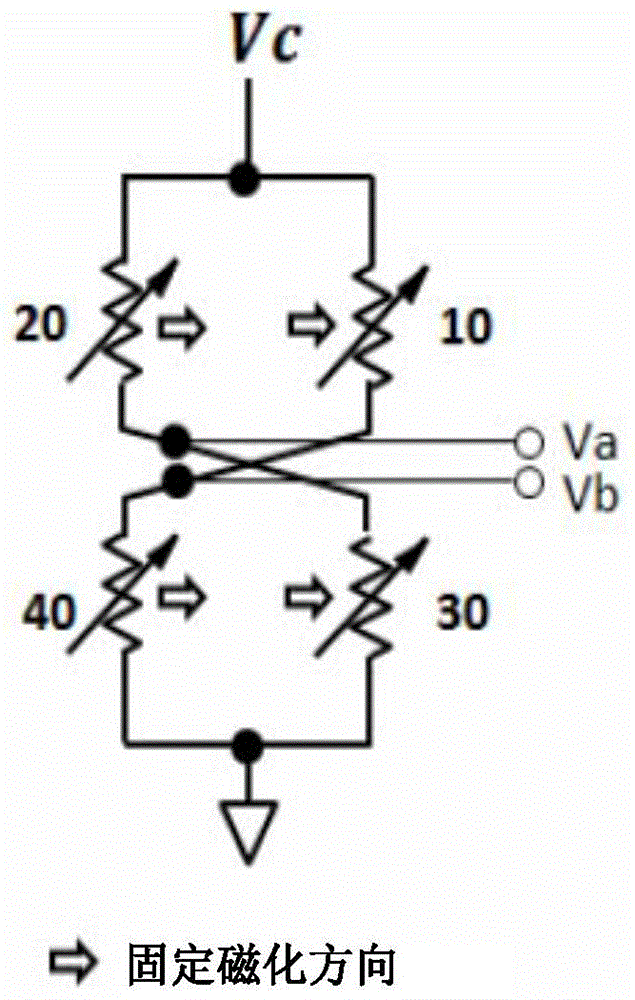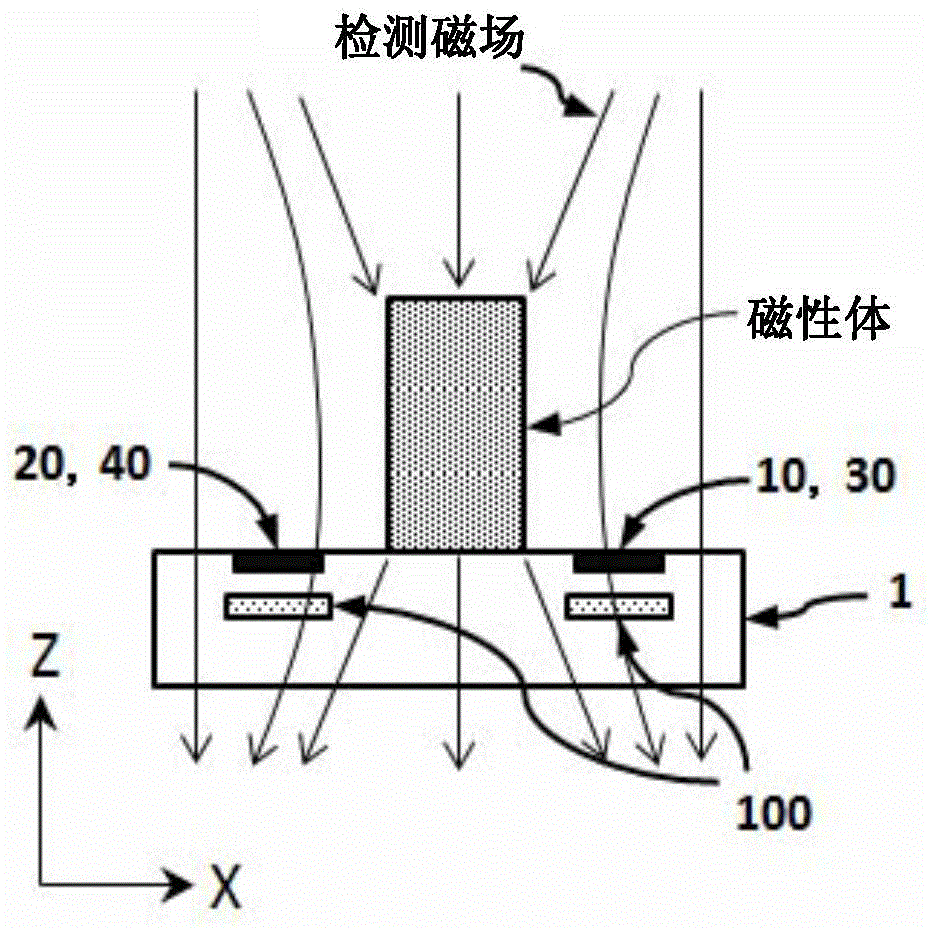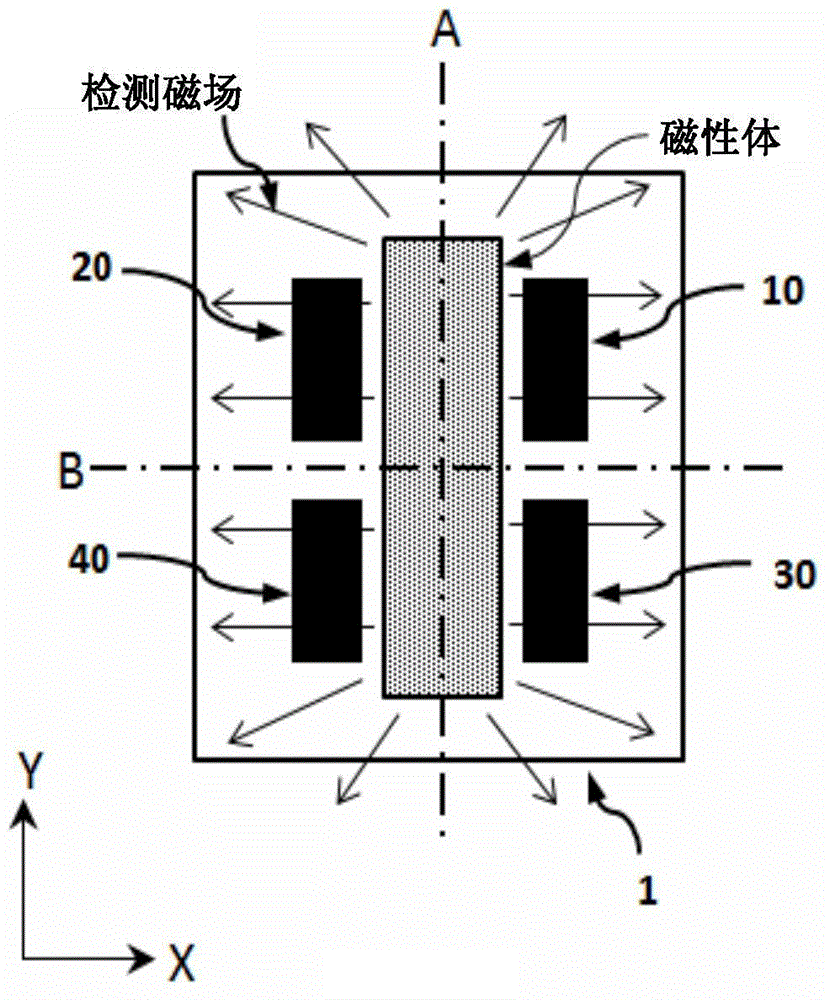Magnetic field detecting sensor and magnetic field detecting apparatus using the same
A technology for detecting sensors and magnetic fields, applied in measurement devices, instruments, measuring magnetic variables, etc., can solve the problems of reducing manufacturing costs and miniaturizing sensors, and achieve the effect of reducing manufacturing costs and suppressing product costs.
- Summary
- Abstract
- Description
- Claims
- Application Information
AI Technical Summary
Problems solved by technology
Method used
Image
Examples
Embodiment approach 1
[0045] figure 1 It is a schematic diagram of a bridge circuit constituting the magnetic field detection sensor of the first embodiment. The bridge circuit includes a first magnetoresistance effect element 10, a second magnetoresistance effect element 20, a third magnetoresistance effect element 30, and a fourth magnetoresistance effect element 40. The first to fourth magnetoresistance effect elements (10, 20, 30, 40) have the same fixed magnetization directions. One end of the first magnetoresistance effect element 10 and one end of the second magnetoresistance effect element 20 are connected to the power supply terminal Vc. The other end of the first magnetoresistance effect element 10 is connected to one end of the fourth magnetoresistance effect element 40, and the other end of the second magnetoresistance effect element 20 is connected to one end of the third magnetoresistance effect element 30. The other end of the third magnetoresistance effect element 30 and the other e...
Embodiment approach 2
[0062] Figure 7 with Figure 8 This is a biological field measurement device of the second embodiment as an example of a magnetic field detection device using the above-mentioned magnetic field detection sensor. Since one or more of the above-mentioned magnetic field detection sensors are arranged in contact with the detected part and each output is a small signal, a lock-in amplifier circuit or the like is used for the measurement part for measurement. In addition, in order to remove irregular repetitive signals such as external magnetic fields or spontaneous magnetic fields, analog filters such as band-pass filters or digital processing such as arithmetic averaging may be appropriately used.
[0063] Explanation of symbols
[0064] 1 stack
[0065] 10, 20, 30, 40, 50, 60 magnetoresistive effect element
[0066] 100 magnetic field generating conductor
[0067] 200, 210 terminal pads
[0068] 300 detection resistance
[0069] 400 differential operation circuit
PUM
 Login to View More
Login to View More Abstract
Description
Claims
Application Information
 Login to View More
Login to View More - R&D
- Intellectual Property
- Life Sciences
- Materials
- Tech Scout
- Unparalleled Data Quality
- Higher Quality Content
- 60% Fewer Hallucinations
Browse by: Latest US Patents, China's latest patents, Technical Efficacy Thesaurus, Application Domain, Technology Topic, Popular Technical Reports.
© 2025 PatSnap. All rights reserved.Legal|Privacy policy|Modern Slavery Act Transparency Statement|Sitemap|About US| Contact US: help@patsnap.com



